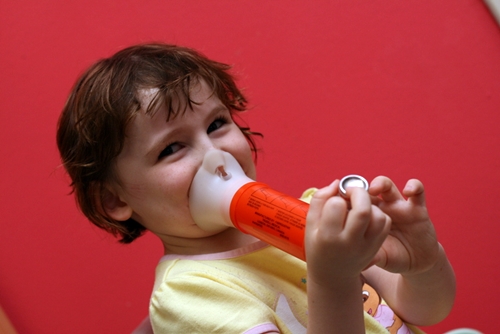18 December 2015. A new challenge on InnoCentive is looking for treatment strategies to halt the progression of allergic reactions leading to development of asthma. The competition has a total purse of $20,000 and a deadline for submissions of 14 February 2016. The sponsor of the challenge, pharmaceutical company Boehringer Ingelheim, is also seeking research plans related to the challenge proposals, with funding of up to $200,000 selected separately.
The challenge is conducted by InnoCentive in Waltham, Massachusetts that conducts open-innovation, crowdsourcing competitions for corporate and organization sponsors. Free registration is required to see details of the competition. In November, Boehringer Ingelheim revealed that it planned to make more use of crowdsourcing for R&D ideas through InnoCentive and others.
Asthma is chronic condition, where the airways become inflamed and narrow, causing people with asthma to experience wheezing, shortness of breath, tightness in the chest, and coughing for periods of time. Centers for Disease Control and Prevention estimates that in 2010 some 18.7 million adults had asthma, along with 7 million children.
Most asthma treatments relieve symptoms rather than addressing underlying causes of the disease, such as allergies to pollen, molds, or dust mites that trigger the airway inflammation in asthma. Among people with asthma, normal immune system mechanisms that make it possible to adapt to these allergens do not function. Immunotherapies addressing specific allergens are being developed, but the competition’s sponsor says these treatments can take several years, and have uneven success rates and safety issues.
Boehringer Ingelheim is seeking new approaches for blocking the advance of allergic reactions that lead to development of asthma. Solutions from competitors should propose strategies that induce tolerance for allergens by depleting immune system cells presenting these allergens. Submissions should offer molecular targets or new types of treatments that address these immune system factors without compromising the overall immune system.
InnoCentive calls this type of competition an ideation challenge, which requires a brief (two-page) proposal. Ideation proposals can contain ideas originating from the participants, the public domain where no restrictions are applied, or third-parties where participants have the rights to propose solutions with those ideas. Participants are asked not to submit confidential information in their proposals.
Boehringer Ingelheim says it plans to award the entire $20,000 challenge purse, with at least one award being no smaller than $5,000 and no award being smaller than $3,000. The sponsor also indicates that submitting a proposal grants the sponsor a non-exclusive, perpetual, and royalty-free license to use any information in the proposal. An exclusive transfer of intellectual property rights to the sponsor, however, is not required.
Participants in the competition with their own research facilities can apply for funding to carry out the research plan in their challenge proposals. Boehringer Ingelheim says these resesearch plans should not exceed two years nor request more than $200,000. The company says the optional research proposals will be considered separately from the challenge submissions, but still have a 14 February 2016 deadline.
Read more:
- Wearable Asthma Trigger Detector in Development
- Chip Emulates Human Airway Muscles to Test Asthma Treatments
- Asthma/COPD Device Maker Lands $14.5M in Venture Funds
- FDA Clears Asthma/COPD Mobile Reporting, Analytic System
- Asthma Drug Helps Desensitize Multiple Food Allergies
* * *


 RSS - Posts
RSS - Posts
You must be logged in to post a comment.